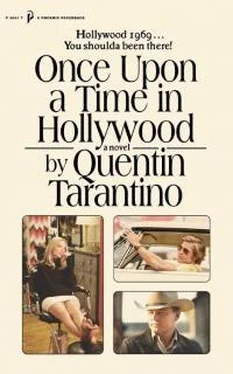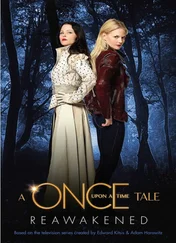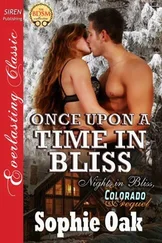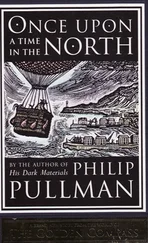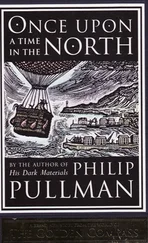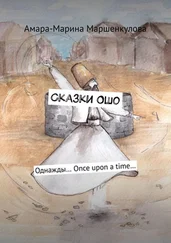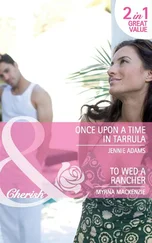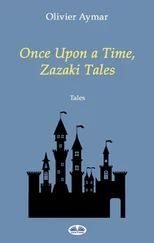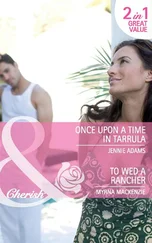Seven months later, after Rick returned from the Marvin Schwarz–arranged trip to Italy, with a brand-spanking-new Italian wife, he would get a call from his old mentor-director Paul Wendkos. They hadn’t talked in three years, and Rick was glad to hear from him.
“Hello,” Rick said into the phone receiver.
“Dalton, you ol’ sack, it’s Wendkos.”
“Hey, Paul, how ya doin’?”
“How am I doin’, how the hell are you doin’?” Wendkos said. “I heard some fuckin’ hippies busted in your place and you went all Mike Lewis on them.”
Rick gave a humble no-big-deal kinda laugh and said, “All I did was realize the distance between me and Mike Lewis. He kills a hundred and fifty Nazis and doesn’t change his expression. I torched one small hippie girl and I practically shit my pants.”
“Well, honestly, Rick,” Paul said, “when Lewis killed those guys and his expression didn’t change, that wasn’t because he was so brave. It was because you can’t act.”
They both laughed it up on each side of the phone.
What Wendkos was referring to: No sooner did Rick and his new bride arrive from Rome to his house in Benedict Canyon than three hippies (two girls and a guy) broke into his home, brandishing butcher knives and a pistol, threatening his family. Rick and Cliff made short order of the housebreakers, killing all three in a brutal fight. Cliff, in the living room, protecting Rick’s new wife, Francesca, bashed in the faces of the guy and one of the girls. Rick, who was in his floaty chair in the swimming pool at the time of the attack, was almost shot by the hippie girl with the pistol. He later told authorities, “That goddamn hippie almost blew my fuckin’ head off!”
And in a scene straight out of Wendkos’s picture The Fourteen Fists of McCluskey , Rick set the assailant on fire with the practice flamethrower left over from McCluskey , which he had in his toolshed. (“I burnt that goddamn hippie to a crisp,” he later told his neighbor.)
What the armed intruders’ intentions were was never made clear. But their intentions sounded both deadly and evil. When Cliff asked the male intruder what he wanted, the young man invoked Satan, saying, “I’m the devil, and I’ve come here to do the devil’s business.”
The LAPD theorized the hippie intruders were frying on acid and were out to perform a Satanic ritual. What isn’t a matter of theory is, those fucking hippies sure picked the wrong house .
The next day, Rick’s adventures hit the news, and it became the talk of the town. It went from local news to the network evening news and finally the world. Something about Jake Cahill killing three long-haired hippie bad guys with his flamethrower from The Fourteen Fists of McCluskey just seized the imagination. Till pretty soon the whole ghastly night of violence became heavy with symbolic weight—turning Rick, the former TV cowboy, into a folkloric hero of Nixon’s “silent majority.”
All this newfound attention wasn’t lost on the industry either. Shortly afterward, Dalton was offered a guest-star gig on one of the biggest shows on TV, Bruce Geller’s Mission: Impossible . After the flamethrower incident, TV Guide did an inside profile on him (his third profile in the magazine). And he was asked to appear for the first time on The Tonight Show Starring Johnny Carson. Rick proved a big hit in Johnny’s guest chair. And throughout the seventies, Carson had him back on whenever Dalton had a film role, TV movie, high-profile guest shot, or new series to promote. Dalton later confessed to his buddy Cliff, “All in all, those goddamn hippies did me a favor.”
Paul Wendkos wasn’t just calling Rick up to shoot the shit. He was making the phone call that every actor wants to get. He was calling about Rick’s availability. The director was just about to start filming a World War Two programmer based out of England and to be shot in Malta. And not only had the hippie flamethrower incident raised Dalton’s profile, but it also raised the profile of the Wendkos film The Fourteen Fists of McCluskey.
Wendkos was preparing a film for a small British production company called Oakmont Productions, which had an international distribution deal through MGM. Oakmont specialized in modestly budgeted World War Two action-adventure vehicles featuring British casts, except for the lead, who was usually an American actor known from television. Some examples were Boris Sagal’s The Thousand Plane Raid starring Christopher ( Rat Patrol ) George; Mosquito Squadron starring David ( Man from U.N.C.L.E. ) McCallum; Billy Graham’s Submarine X-1 , starring a pre- Godfather , post- El Dorado James Caan; Walter Grauman’s The Last Escape , starring Stuart ( Cimarron Strip ) Whitman; and Wendkos’s Attack on the Iron Coast , starring Lloyd ( Sea Hunt ) Bridges. Wendkos was gearing up to do one more, a Navy-based adventure with the pulpy title Hell Boats . The movie was initially set to star the blond television actor James ( Mr. Novak ) Franciscus. But when Franciscus’s starring role in Twentieth Century Fox’s Beneath the Planet of the Apes went over schedule, Wendkos was forced to go looking for another TV-famous American. And just like he did on McCluskey when he lost Fabian due to a broken shoulder, Wendkos thought of Rick Dalton. So next thing Rick knew, he and Cliff were on a plane flying to London, then Malta, for a five-week shoot on Hell Boats.
All the Oakmont Productions were pretty much the same, with Mosquito Squadron and Attack on the Iron Coast being the pick of the litter. But for what they were, they weren’t bad. They were pretty entertaining if unmemorable potboilers. When Hell Boats played theatrically in America in 1970, it was on the lower half of a double feature with Phil ( Hellfire, Texas ) Karlson’s exciting Italian-made World War Two action flick Hornets’ Nest , with Rock Hudson and Sylva Koscina. Which pretty much had the exact same story as The Fourteen Fists of McCluskey , except instead of Rod Taylor leading a gang of brutes to blow up a dam and flood a Nazi stronghold, it was Rock Hudson leading a band of war-orphaned children to blow up a dam and flood a Nazi stronghold. All in all, a pretty entertaining night at the movies in 1970.
Along with another lead role in a studio production, Hell Boats offered Dalton a chance to reestablish his relationship with director and mentor Paul Wendkos. And Wendkos wasted no time plugging Dalton into his next picture. A few years earlier, when Wendkos was making for the Mirisch Company the third of their Magnificent Seven movies, he wanted Dalton for what in essence was the McQueen part. But since Rick was stuck over at Universal working alongside an aquatic rodent, he had to pass. Wendkos did such a good job with that assignment, the Mirisch Company offered Paul the fourth film in the series, at the time titled Cannons for the Magnificent Seven. The script was written by Stephen Kandel, who also wrote Wendkos’s film Battle of the Coral Sea , which was where Dalton first worked with the filmmaker. The script deals with the character of Chris (Yul Brynner in the first two films and George Kennedy in Wendkos’s third flick) and his six other compadres fighting a Mexican bandit who poses as a revolutionary named Córdoba. Córdoba’s army is one hundred men strong, and he has six cannons he swiped from the United States military.
Chris and his Magnificent Seven, sent by none other than General John J. Pershing, were to go into Mexico, infiltrate Córdoba’s impenetrable fortress, destroy the cannons, capture Córdoba, and bring him back to the United States to stand trial. Like General Pershing tells Chris, sounding similar to one of Jim Phelps’s self-destructing tapes on Mission: Impossible , “If you agree to go, you’ll be without authority, without orders, without uniforms. If you’re caught, you’ll be shot.” The whole story has a western Mission: Impossible vibe, which shouldn’t be surprising since Kandel was the head story editor on that series at that time. When Kandel was writing his script, he just assumed big George Kennedy would be reprising his role as team leader Chris. All through the screenplay, his prose kept referring to Chris’s behemoth-like stature. But once the writer turned in the script to the Mirisch brothers, they liked it so much, they figured they could do better than George Kennedy. Instead, they offered the film to George Peppard. Peppard responded to the material, but with a caveat. He’d be damned if he was going to be the third guy in the fourth Magnificent Seven film to play Chris. So he instructed them to lose The Magnificent Seven connection and name his character anything other than Chris. Kandel rewrote the script, and Peppard’s character went from Chris to Rod. And the team went from the Magnificent Seven to the Magnificent Five. And the title was changed to Cannon for Cordoba. Wendkos offered Dalton the part of the second-most-important team member, Jackson Harkness. However, this time the second-lieutenant role wasn’t a McQueen copy. Rod and Jackson shared a similar dynamic with Gregory Peck and Anthony Quinn in The Guns of Navarone . Dalton’s Jackson blames Peppard’s Rod, his former friend, for the death of his brother. While Rick’s character agrees to go on the mission to Mexico to destroy Córdoba and his cannons, Jackson vows to kill Rod— if they live through it.
Читать дальше
